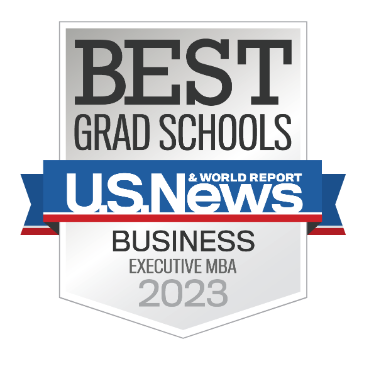
Everything You Need to Lead
The Executive Leadership Certificate program is designed to prepare you for leadership responsibilities in business and the community. Guided by exceptional faculty and our team of seasoned executive coaches, you’ll evolve as an authentic leader and develop a deeper understanding of how you can effect positive change and inspire others to action.
Course Details
-
Building Vision for a Global Commons
-
Considering the global and multi-cultural context of managerial practice, this course emphasizes the formation and practice of the art of adaptive leadership. We address issues of "vision" in unprecedented conditions and the critical dimensions of purpose and motivation. Participants explore the functions of authority, trust, and power and their role in complex systems.
-
Creating High Impact Teams
-
This course begins with an outdoor experiential laboratory in which participants face personal and team challenges during a three-day off-site retreat. The experience increases cohesiveness among class members, and provides strong insight into factors that support effective teamwork. Back on campus, participants analyze their workplace teams and the nature of organizational supports for maximum team effectiveness. They also examine their values and behavior in relation to work and personal life.
-
Ethical Leadership
-
This course examines leadership and ethical decision-making. Participants gain skills and information needed to establish ethical goals, resolve ethical problems in a global marketplace, address ethical responsibilities as a leader, and maintain ethical standards within pluralistic organizations and societies.
-
Leading Responsible Organizations
-
Building on earlier modules, this section of the program applies leadership models to issues facing contemporary organizations. Students analyze leadership in the context of corporate social responsibility, leading change, strategy, innovation, and globalization, and extends to issues facing organizations represented in the program. Participants also interview local leaders and CEOs, meet with executive guest speakers, and contribute to active discussions of cases and articles.
-
Leadership Synthesis and Discernment
-
This course integrates and applies leadership theory to each participant’s capabilities. Students review their leadership history and reflect on direct experiences during the program to explore personal values, connection to the commons, and their role at work. Following a six-month discernment process, each student drafts a leadership development plan and reviews it with both faculty and their executive coach. Emphasis is placed on exploration and alignment of personal values with organizational and societal needs in order to lead authentically for maximum impact. The course addresses transformation and change as processes involved in both personal growth and organizational leadership.
-
Leadership Assessment and Coaching
-
Early in the program, this course provides comprehensive assessment of participants on their leadership skills, and their cognitive and interpersonal styles. With confidential feedback, students explore together with their coaches the implications of their tendencies for work and personal effectiveness. Participants then work one-on-one with their executive coach to integrate this material with other learning in the program and improve their leadership capabilities.
-
Leadership for a Just and Humane World
-
This course involves a project requiring participant-teams to serve a social justice (vs. charitable) need in the community. Groups choose their domain of service, develop a sustainable model for their project, and implement their projects within the community using executive-level skills. The project is a learning laboratory, supporting regular review of participants’ experiences in leadership and teamwork against a clear set of criteria. Participants learn new methods for making decisions, working in teams, affecting and leading change, among other topics.
Upon successful completion of this program, students will possess:
- A deepened sense of who they are as a leader
- Superior leadership acumen with the ability to influence individuals and orchestrate organizational change
- An internalized practice of leading with conscience and competence in a way that allows them to affect positive change in their environments and deliver a greater impact.
What You Can Expect to Learn
Graduates consistently report that the Executive Leadership Certificate program was not only formative, but transformative for them, both personally and as leaders of others. Years later, alumni still regard the program as one of the most--if not the most--rewarding experience of their careers.
Upon successful completion of this program, you will possess:
- A deepened sense of who you are as a leader.
- Superior leadership acumen with the ability to influence individuals and orchestrate organizational change.
- An internalized practice of leading with conscience and competence in a way that allows you to effect positive change in your environments and deliver a greater impact.
I chose Seattle University because of the leadership curriculum. This program really hones an individual’s qualities and ability to motivate others within an organization. One of the most critical concepts I took away from the program is that of adaptive change, tailoring our leadership skills and structures to the type of problem we’re facing in a particular environment.
John Milne, MD, ELP '08, LEMBA '09 Senior Vice President, Real Estate and Construction, Providence St. Joseph HealthFor me, most of the learning was experiential rather than academic. However, I did learn academic concepts that I have employed like processes and systems that taught me how to listen to and integrate others’ thoughts and suggestions in forming team goals and desired outcomes.
Mike Porter, ELP ‘16 Vice President Facility Services, McKinstry